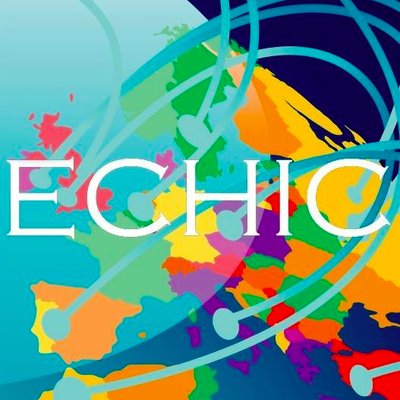2008
The first meeting of institutional partners interested in setting up a European consortium of Centres and Institutes for the Humanities was organised by Rosi Braidotti and took place in Utrecht in April. The theme was: “Building a Consortium for the Humanities in a Globalised World”. The participants were: Jane Fenhoulet of UCL; Costas Douzinas of Birkbeck College; Lilie Chouliaraki of the London School of Economics; Svetlana Slapsak of the Ljubljana Institutum Studiorum Humanitatis; Helmut Lethen from Vienna; Howard Robinson of the Central European University; Vita Fortunati of Bologna University and Ian Donaldson from Melbourne University. Apologies were received from Susan Manning of Edinburgh University who could not attend the meeting but supported the initiative. The first meeting was very successful and the participants agreed to set up a joint platform for reflection about research in the Humanities in the contemporary university. It was also resolved to continue to compare notes with a number of preferred partners.
The second meeting was hosted by Patrizia Violi, vice-president of the Scuola Superiore di Studi Umanistici (SSSUB) in Bologna in November 2008. It was attended by: Jane Fenhoulet of UCL; Costas Douzinas of Birkbeck College; Juha Sihvola of the Helsinki Collegium for Advanced Study and Rosi Braidotti of Utrecht University. Apologies were received from Susan Manning of Edinburgh University; Lilie Chouliaraki of the London School of Economics; Svetlana Slapsak of the Ljubljana Institutum Studiorum Humanitatis; Helmut Lethen from the International Research Center for Cultural Studies in Vienna who could not attend the meeting but supported the initiative.
The momentum was kept up by the partners in the months that followed and it developed in two parallel directions. The first included theoretical discussions about the future of the Humanities in the institutional and global context of the twenty-first century. The second was more practical and aimed at developing sustainable partnerships for joint fund-raising and other activities.
2009
Both strands converged in the next meeting of the consortium, which took place in London in November 2009 and was jointly organized by UCL and Birkbeck College. It was attended by:Andrew Webber, Acting Director CRASSH, Department of German,;Costas Douzinas, Director, Birkbeck Institute for the Humanities; Cristina Demaria, Scientific Secretary of the SSSUB , Bologna; Dr Myria Georgiou, LSE; Dr. Berry Chevasco, UCL Humanities; Dr. Kustaa Multamaki, Head of Planning and Development; Helsinki Collegium for Advanced Studies; Effie Yiannopoulou, Department of English Literature, Aristotle University of Thessaloniki; Frédéric Ogée, Dean of International Office, Université Paris-Diderot, Hilary Marland, Warwick University, Jane Fenoulhet, University College London, Lilie Chouliaraki, Research Director, POLIS, LSE,Marlise Mensink, Utrecht University,Nadia Fadil, Katholieke Universiteit Leuven,Nick Long, Cambridge, Patrizia Violi, University of Bologna,Pauline Phemister, Acting Director, Institute for Advanced Studies in the Humanities, Univ of Edinburgh,Poul Holm, Academic Director, Trinity Long Room Hub, Trinity, Dublin,Robert Mankin, Université Paris-Diderot, Rosi Braidotti, Director, Centre for the Humanities, Utrecht University,Sami Pihlström, Director of the Helsinki Collegium for Advanced Studies,Sarah Bracke, Katholieke Universiteit Leuven,Svetlana Slapsak, Dean of ISH, Ljubljana
The theme was: “What are the Humanities for?” and for the first time the meeting of the consortium also included a public event: a panel discussion with Braidotti and Douzinas which was very well attended. This meeting agreed to explore more concrete forms of co-operation, both in terms of joint applications and also by investigating the possibility of organising an annual European Conference about the Humanities.
2010
A group of European partners who were also members of the international consortium CHCI gathered at the annual CHCI Conference at Brown University in Providence in June 2010 and discussed again the issue of the aims and structures of a European platform. They were also able to invite a few more EU partners who were already members of CHCI to join the new European consortium. These new partners were: the Free university in Berlin; The Freiburg Institute of Advanced Study and Fondazione SUM in Florence.
At this informal Brown gathering, they also discussed the possibility of moving further ahead with the project of establishing a European Consortium of Humanities Centres. More specifically, progress was made in the idea of organising the first of a hopefully annual series of European Conferences for the Humanities. The tentative schedule which those present at Brown suggested involved a first informal organisational meeting in the early fall, to look into what such a project would involve.
The preparatory meeting for the launching conference accordingly took place at the Centre for the Humanities at Utrecht University in September 2010 and was attended by Poul Holm of Trinity Long Hub room; Federic Ogee and Robert Mankin of Paris VII, Denis-Diderot; Marxiano Melotti, of Fondazione SUM; Anna Ertel and Carsten Dose, of FRIAS – Freiburg Institute for Advanced Studies; Kustaa Multamaki of the Helsinki Collegium for Advanced Studies and Arianna Ciula,from the European Science Foundation. This meeting agreed to prepare the international launching conference itself, which was scheduled in Dublin for February 2011, when the official launch of the Consortium could be announced and its official named finally disclosed. Thus ECHIC came into being.

